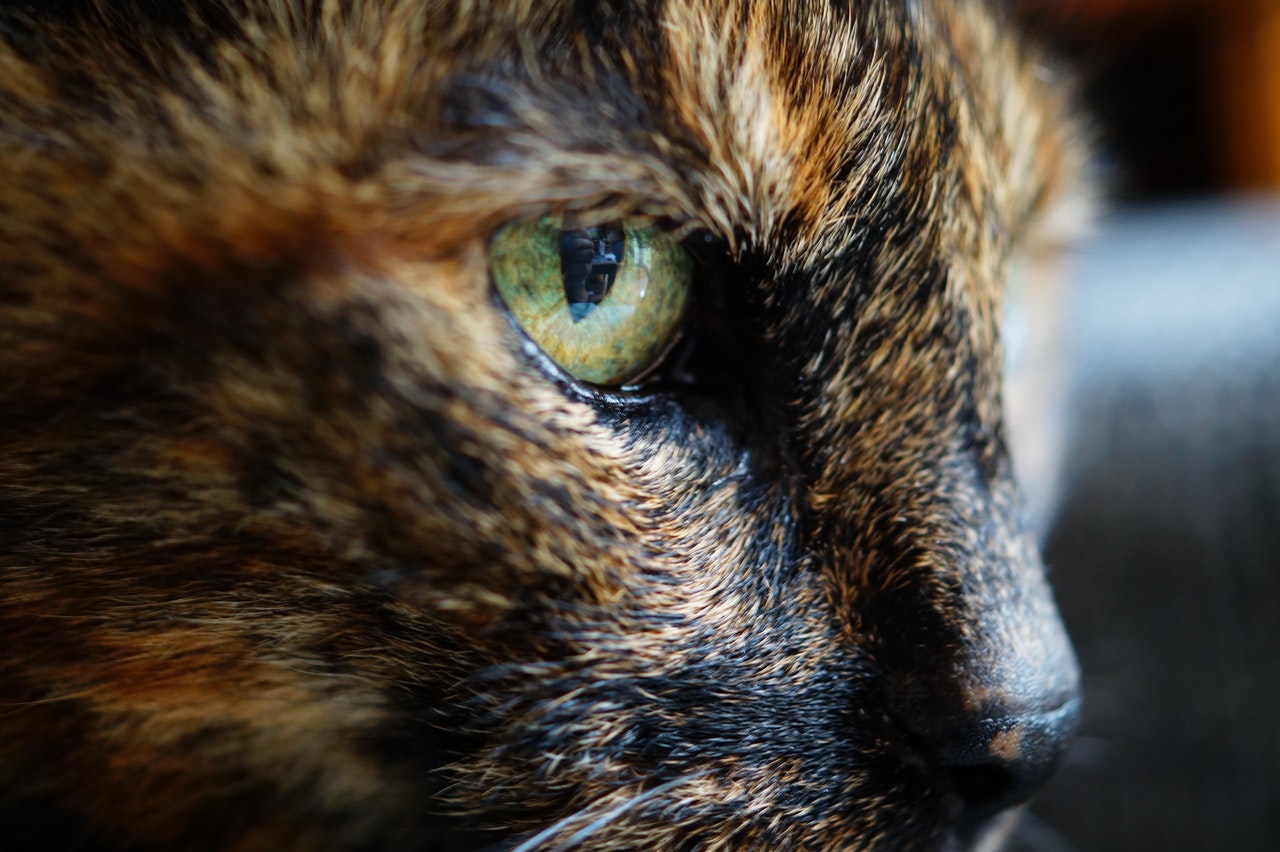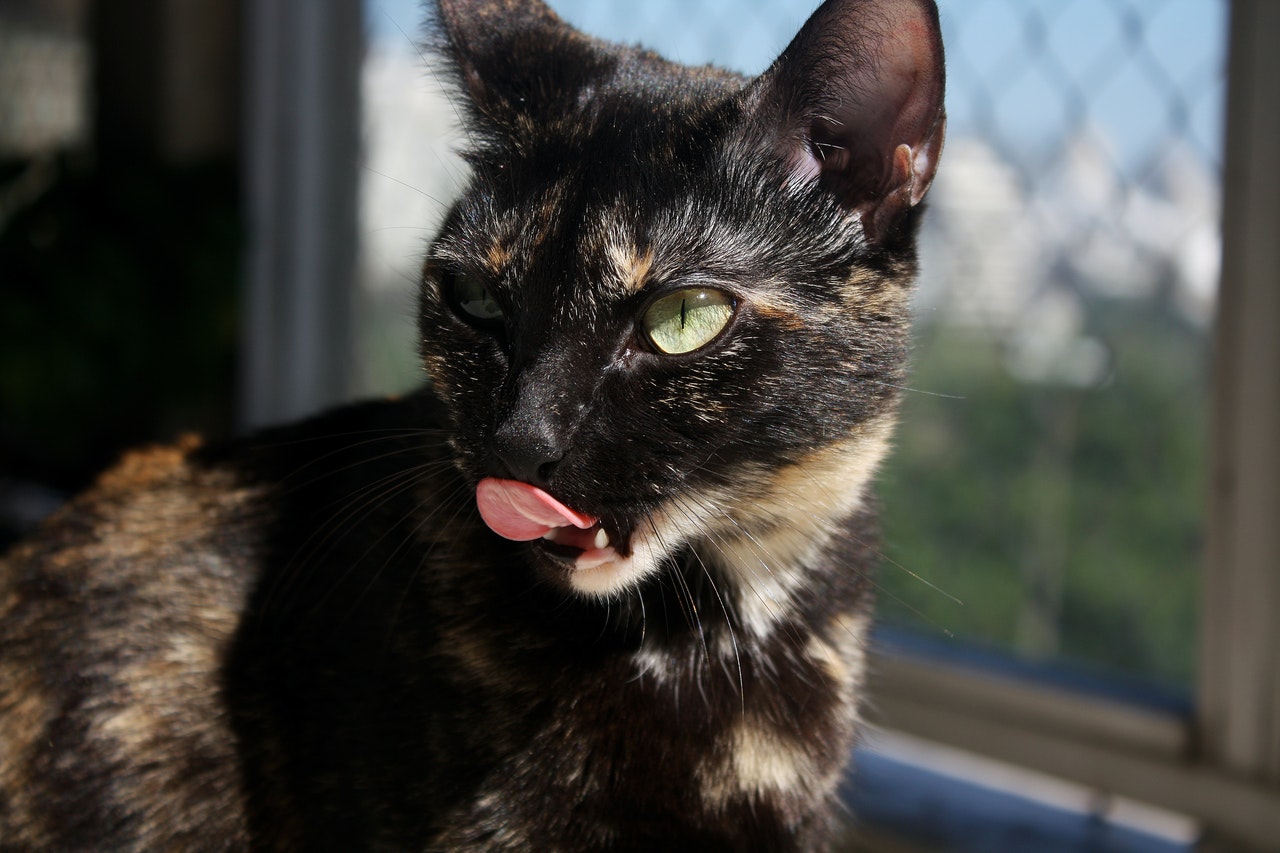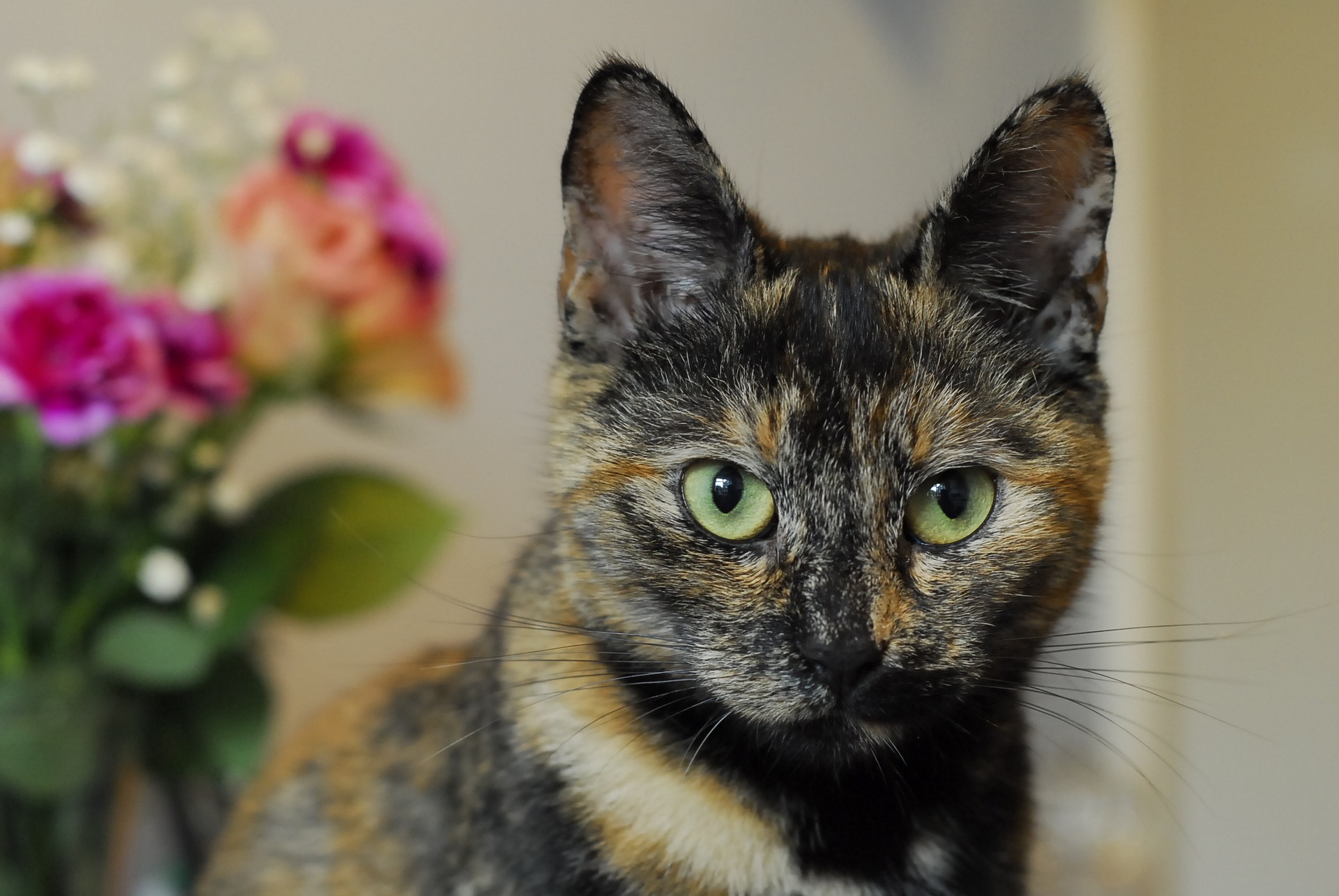Tortoiseshell cats, aka torties, are gorgeous, trendy cats that many pet parents prefer. But whenever you bring home a cat, it’s essential to be familiar with some of the common concerns associated with that cat’s breed or color. There are many breeds that carry predispositions for specific health issues, and when you’re aware of those problems, you can watch your cat more closely. Hence, you’re prepared to help if those issues occur. Whether you’re planning to bring home a tortoiseshell kitty or already have one in your home, here’s the information that you should know about tortoiseshell cat health problems.

Understanding the tortie
The good news? Almost no health issues come with your cat being a tortoiseshell, and that’s because tortoiseshell is a color, not a breed.
Good Housekeeping explains that torties have multicolor fur of black, reds, and oranges. The tortoiseshell type occurs in multiple breeds like the Persian, Maine coon, British shorthair, American shorthair, and Cornish rex. Torties can have long or short hair, depending on their breed.

Tortoiseshell cat health problems
The bad news is that one health issue can occur because your cat is a tortoiseshell, but it’s rare. The female chromosome X has two versions. One carries the gene for black fur and the other form codes for orange fur. Females, who have XX chromosomes, can display both black and orange colors in their coats. Males, on the other hand, have XY chromosomes, so their coats can either be black or orange.
That is, unless a rare condition occurs. According to ASPCA Pet Insurance, very rarely, males are born with XXY chromosomes. They present as male cats but can have tortoiseshell coats because they have two X chromosomes.
This condition can cause Klinefelter’s Syndrome, which can lead to developmental issues, behavioral problems, bones that break easily, and increased body fat that can contribute to diabetes and heart disease. These cats are sterile, and many experience shorter lifespans.
It’s important to note that if your tortie doesn’t have Klinefelter’s Syndrome, she should have a normal life expectancy. Cats can live 15 years or longer, so you can expect to have her around for many years.

How to keep your tortie healthy
While tortoiseshell cats typically aren’t predisposed to health issues because of their color, it’s still important to understand any health issues that may come with your cat’s breed. If you know your cat’s breed, ask your veterinarian or do a little research into their common health problems so you’re aware of any symptoms that you should look out for.
Beyond that, your tortie will benefit from the same quality healthcare that you’d provide any other cat. That healthcare starts with a quality diet and a lifestyle designed to keep your kitty entertained and active.
Obesity is a common concern in cats, and it can lead to many other health issues, including joint problems and heart problems. Focus on keeping your cat at a healthy weight by feeding a quality cat food and by making sure she gets plenty of exercise. You can experiment with different toys to pique your cat’s interest, and make sure to schedule playtime each day — ideally, schedule playtime multiple times per day. If your cat tends to scarf down her food, think about feeding her several small meals per day. There are also many feeding toys and bowls designed to slow down your cat’s food intake so she eats more gradually and feels full longer.

Final thoughts on torties’ health
Don’t forget to make your vet a close partner in caring for your cat. Annual vet appointments offer opportunities to monitor your cat’s weight, and your vet may even spot symptoms of health issues early on before they become too severe. As your cat ages, increasing the frequency of these appointments can help your vet to diagnose any of the many health issues often present during the senior years. Your vet can also advise you on choosing a diet appropriate for your cat and managing your cat’s weight to keep her as healthy as possible. With this careful focus on your cat’s health and care, you can increase her chances of living a long, happy life.
Editors' Recommendations
- Wondering why cats chirp? Fascinating reasons why your cat chirps at birds (and you)
- How to cat-proof your balcony before the unthinkable happens
- There’s a totally normal reason cats throw up after eating grass – here’s why
- Your cat trilling is actually a good thing – here’s why
- What you need to know about crating a cat at night



